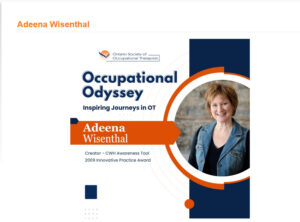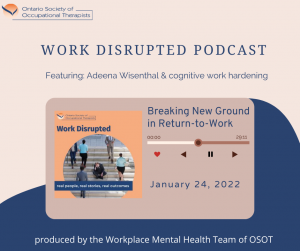Workplace mental health is garnering much attention given the rising number of related disability claims and the unique challenges with returning to work following a mental health leave. A growing number of employees are off work due to depression, anxiety, and burnout. Today’s workplaces are often stressful owing to workload, timeline pressures, competing demands, and management style. Personal stressors (e.g., family responsibilities, financial concerns, single parenthood) can add to the emotional strain and collectively can manifest in work absences, reduced work performance, and diminished motivation.
Workplace mental health can be approached in the following ways:
Prevention
Education is the hallmark of prevention. This includes education on work-life balance, strategies to manage stress, and education regarding signs that an employee may be struggling with mental health. Signs include: reduced work performance (when an employee typically performs well); work absences (especially when the employee has been a consistent worker); and behavior/personality changes (e.g., angry outbursts, withdrawal). A manager needs to distinguish between a work performance issue and a mental health issue and to keep lines of communication open to address these concerns. Employers are not expected to be doctors and diagnose a problem and they are not expected to be therapists to their employees.
Employers need to establish work cultures that foster good mental health. This can be accomplished by recognizing the value of their employees and setting the tone for appreciating employees as assets. The culture emanates from the top and trickles down. A healthy workplace is critical for everyone’s health and for the organization’s bottom line.
Return-to-work
Returning to work after a mental health disability is challenging. Employees may be medically cleared to return to work because their depression, for example, has improved; however, they may not be functionally ready to resume job demands. This may be due to lack of a routine, reduced cognitive abilities (e.g., concentration, memory, multitasking), and mental fatigue that manifests in limited work stamina. Many people struggle with communication skills or time management skills needed to establish boundaries and to prioritize work tasks. Without coping skills to manage work pressures and interpersonal issues, returning to work can be difficult. Add to this the stigma regarding mental illness which often includes a lack of understanding of mental health and accommodation needs that may be necessary to help an employee succeed at work.
It is essential that individuals are at a level of occupational functioning that sets them up for return-to-work success. There needs to be a fit between job demands, work environment, and work capabilities. A person needs to be cognitively and emotionally ready for return-to-work.
Stay at work
Workplace supports and job accommodations optimize work performance. Healthy lifestyle habits (e.g., good nutrition, hydration, physical activity) foster cognitive functioning and promote resiliency skills. Learning effective communication strategies enhance interpersonal relationships and pacing techniques improve work stamina.
Occupational therapists can help
Workplace mental health is an emerging area in healthcare. Occupational therapists are well positioned to address this issue and have indeed carved an impactful role as they bridge the gap between healthcare and the workplace. They apply their understanding of mental health and its impact on productivity. Their focus on function is applied within a client-centered problem solving approach that incorporates job analysis skills and a view towards workability.
A version of this post appears in the December 2018 issue of the Ottawa Business Journal (Vol 21, No. 23). See HR Update section, page 12, in paper copy or page 64 in the digital version here.








